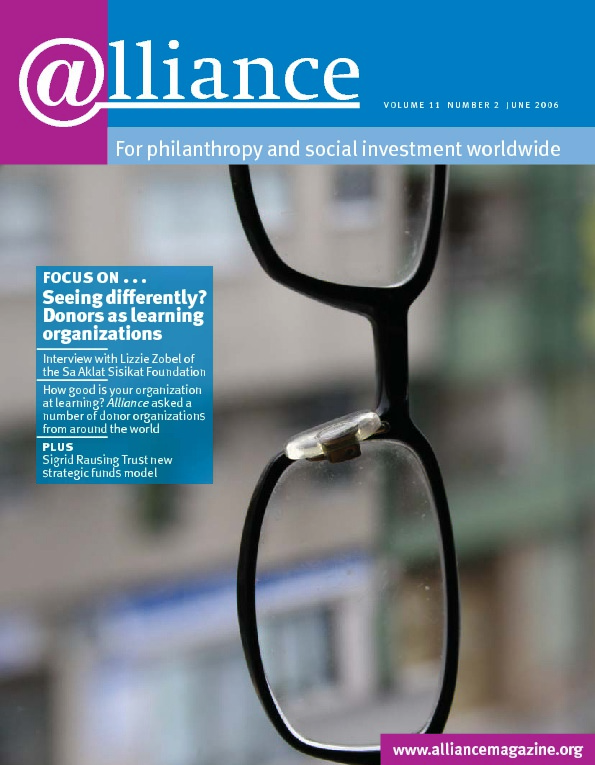How do we really make a difference in the world? We act, we reflect, we learn and we change. This is particularly important for donors as they control resources that can enable or disable social change. Too often, however, reflection and learning are neglected out of organizational complacency, fear of failure, and a paradigm of impact which is over-reliant on what can be counted rather than what counts.
This article looks at a number of interrelated features of learning organizations and how these play out within donor agencies. We consider some critical issues about the ‘space for learning’ in those organizations with the intention to move beyond the rhetoric to look at the context for, and practice of, donors’ engagement with themselves as ‘learning organizations’. The other contributions in this special feature were all written partly in response to an early draft of this article.
The learning organization
For some donors, learning appears to be outweighed by self-belief. An author of this article, for example, was commissioned to evaluate the first phase of a €20 million EU-funded educational reform programme in Central Europe only to discover that the second phase had already been planned in detail. In cases like these, learning tends to be replaced by a narrative and financial report that inevitably demonstrates that money was used appropriately and achieved what it was supposed to.
Subscribe now from only £45 a year!
This article is only available for our subscribers
Existing users can login here

